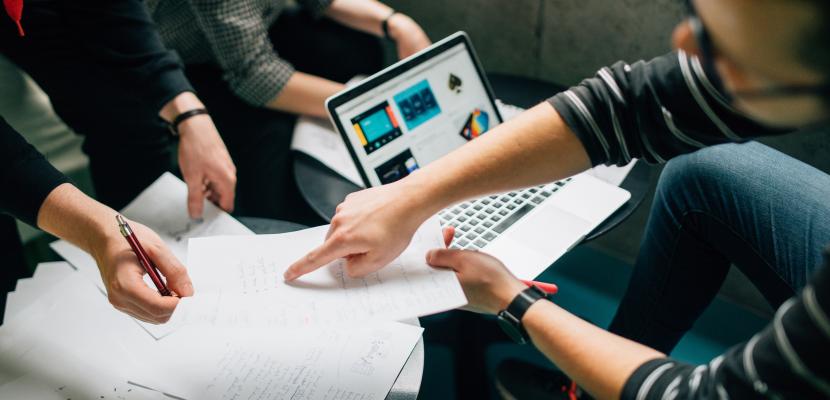Image

Recircula Challenge
Published on 26 June 2019

Spain
Cataluña
This is the good practice's implementation level. It can be national, regional or local.
About this good practice
A real challenge regarding circular economy is put forward. The programme starts with a call to university students to create multidisciplinary groups with the aim to a) identify a specific challenge in the context of the real challenge proposed and b) search a concrete solution for it. After working together for a month, each group has to make a 2-minute video of the group’s work.
During 5 months the participating groups of students work on possible solutions to the specific challenge identified. Groups are advised by university professors who are experts on each challenge and who also act as their tutors during the whole programme.
During these months groups are also provided with:
• Detailed information about the challenge (field visits, networking, etc.)
• Training on: team-building, innovation & communication.
An old container which is used as a temporary lab (where tests are made) is also available to all participants.
After these 5 months, there is a public presentation of all the specific challenges and the solutions provided by the groups. Participating teams defend their solutions and a jury decides on the 3 best solutions. These solutions are awarded:
• First prize: 3.000 € + incubation of the idea.
• Second prizes (2): 1.500 € each.
• To all finalists: a) Entrepreneurship mentoring to develop the solution; b) Video communication
Main players involved: Universities, university students, local authorities.
During 5 months the participating groups of students work on possible solutions to the specific challenge identified. Groups are advised by university professors who are experts on each challenge and who also act as their tutors during the whole programme.
During these months groups are also provided with:
• Detailed information about the challenge (field visits, networking, etc.)
• Training on: team-building, innovation & communication.
An old container which is used as a temporary lab (where tests are made) is also available to all participants.
After these 5 months, there is a public presentation of all the specific challenges and the solutions provided by the groups. Participating teams defend their solutions and a jury decides on the 3 best solutions. These solutions are awarded:
• First prize: 3.000 € + incubation of the idea.
• Second prizes (2): 1.500 € each.
• To all finalists: a) Entrepreneurship mentoring to develop the solution; b) Video communication
Main players involved: Universities, university students, local authorities.
Resources needed
Approximate overall budget: 60.000 €
• 30.000 €: Staff
• 15.000 €. Container
• 15.000 €: Communication and prizes
• 30.000 €: Staff
• 15.000 €. Container
• 15.000 €: Communication and prizes
Evidence of success
Number of groups initially registered to the programme: 21
Number of participating students: 100
Number of different universities involved: 8
Attendance to the training sessions:
• Team-building: 50 students (13 groups)
• Innovation: 45 students (14 groups)
• Communication (pending)
Number of collaborating local authorities: 6 (including the Metropolitan Area of Barcelona)
Number of participating students: 100
Number of different universities involved: 8
Attendance to the training sessions:
• Team-building: 50 students (13 groups)
• Innovation: 45 students (14 groups)
• Communication (pending)
Number of collaborating local authorities: 6 (including the Metropolitan Area of Barcelona)
Potential for learning or transfer
High potential for learning and transfer.
The programme has proven to be an excellent platform for involving university students into the real challenges of the circular economy: 21 groups initially registered and more than 100 participating students. More than 50% of those initially registered stayed in the programme and followed the training sessions. Its methodology has been successful and can be replicated in other regions.
One of its success factors was the setting up of an institutional project (the Recircula Hub) through an agreement between the UPC and the Metropolitan Area of Barcelona.
The programme has proven to be an excellent platform for involving university students into the real challenges of the circular economy: 21 groups initially registered and more than 100 participating students. More than 50% of those initially registered stayed in the programme and followed the training sessions. Its methodology has been successful and can be replicated in other regions.
One of its success factors was the setting up of an institutional project (the Recircula Hub) through an agreement between the UPC and the Metropolitan Area of Barcelona.
Further information
Website
Good practice owner
You can contact the good practice owner below for more detailed information.
Organisation
Universitat Politècnica de Catalunya, Àrea Metropolitana de Barcelona

Spain
Cataluña
Contact
